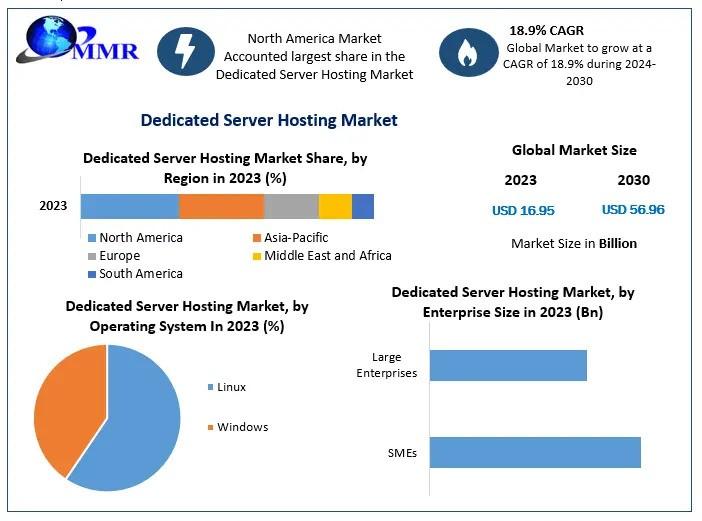
Today, hosting is no longer reserved for tech specialists, but is a service with mass demand. Individuals might seek out a hosting provider when they decide to open an online store, create a website promoting their business, prepare a site for application development, or develop a game server. However, visiting the website of a hosting company will reveal many different hosting services on offer: colocation, server rental, virtual hosting, dedicated server…not to mention such services as SaaS, PaaS, DBaaS, IaaS. What is better to choose and what might be right for you? A dedicated server is one option, and in this article we’ll explain what it is and what it offers, so you can decide if it’s the right hosting solution for your needs.
What Is a Physical Server?
A dedicated server is a type of physical server, so to understand dedicated servers, we first need to define a physical server. A physical server is a powerful computer that is used to run the server software. It includes a central processing unit (CPU,) random access memory (RAM,) data storage (hard disk or solid state drive,) network adapter, power supply, cooling, remote access control and operating system. It is stored in a specially equipped place: a data center.
For a physical server to function, it requires a lot of resources, and most often one user doesn’t need—or have the budget for—the entire server. Therefore, one server is divided up to provide several services (like hosting and virtual servers) to multiple clients.
However, sometimes users do in fact need the resources of an entire server for themselves, for example, if they own a large project or plan to expand quickly. In this case, renting a dedicated server makes sense.
What Is a Dedicated Server?
A dedicated server is a powerful, physical computer provided to a single client or organization for their exclusive use. It runs an operating system and various applications that are completely controlled by the client. A dedicated server has high performance components that provide the ability to handle more traffic and offer more compute.
When you rent a dedicated server, you are provided with a physical location in the data center where your server will be hosted. The data center provides optimal conditions for server operation, including power supply, cooling, network connectivity, and physical security. After installing the server hardware, you can choose which operating system will be installed on the server based on your needs and preferences. Dedicated servers support various operating systems such as Windows Server, Linux, and FreeBSD.
| Point of comparison | Dedicated Server | Bare Metal Server | Virtual Server |
| Main component | A server that is entirely provided to one client, and he has full control over this server | A server created on a physical server using virtualization. whereby the user gets 100% hardware power, without a hypervisor and virtualization layer, but with the ability to manage a physical server as easily as a virtual machine | A server created on part of a physical server using virtualization |
| Performance | Consistently high performance due to the presence of huge capacities and dedicated resources | Consistently high performance due to the presence of huge capacities and dedicated resources | Less consistent performance due to multiple users actively using the same resources |
| Structural features | Access to all allocated resources: (CPU), memory (RAM), storage drives (SSD or SATA), network interfaces, and other necessary components | Access to all allocated resources: (CPU), memory (RAM), storage drives (SSD or SATA), network interfaces, and other necessary components | Service users are hosted on the same device and share server resources |
| General costs | Monthly payment with the possibility of varying a large number of tariff plans. Also, some tariff plans have paid traffic when the limits are exceeded | Billed on an hourly basis | Monthly payment, some tariff plans have paid traffic when the limits are exceeded |
| Tariff plan variations | A huge number of ready-made configurations | Limited quantity of tariffs according to server configuration. However, the client has the option to order a non-standard server configuration | A huge number of ready-made configurations |
Features of a Dedicated Server and Its Advantages
A dedicated server allows one user to use the full power of the equipment and customize it according to their needs.
Availability
Having a dedicated server guarantees that you will not share server resources with other users, you have more control over the security of the server and full access to its capacities.
Flexibility and Customizability
A dedicated server gives you complete control over server software, network settings and system resources. You can customize the server according to your needs, install any necessary programs, and customize the system, allowing you to create your own unique environment.
Scalability
Dedicated servers usually offer the ability to scale resources according to the growing needs of your business. You can easily increase memory, disk space, or network bandwidth without any downtime. If you need to add disks or connect any electronic equipment to the dedicated server system while it is running, you can do so without turning off the power—this is called hot swapping. This can be an important aspect of your work if you need dedicated resources to continue your work.
Why Use a Dedicated Server?
A dedicated server can also be used for various purposes, depending on the needs and requirements of an organization or individual. Here are some of the main use cases of dedicated servers:
- Website hosting. Unlike virtual servers, dedicated servers offer more processing power, memory, and bandwidth to handle large volumes of visitors and ensure a fast website response. This solution might be ideal if you have a large e-commerce website.
- Applications and software. Dedicated servers can be used to run complex applications like databases, game servers, and content management systems. For example, a large number of online players require large resources and huge computing power to serve the players smoothly.
- Data storage. Dedicated servers are an effective solution for centralized data storage and processing. This may include databases, file servers, backup and archive servers, and cloud storage.
- Virtualization. Dedicated servers can be used as hosts for virtual machines, so you can create and manage multiple virtual servers on a single physical server. This increases resource efficiency and allows you to isolate different applications or client environments while maintaining full control over the server.
Conclusion
Dedicated servers are a great choice for various needs due to their large bandwidth, ability to work with big data and with high-load projects, and customizability for clients’ specific needs. Gcore provides a great option with dedicated servers in more than twenty locations across six continents. Our dedicated servers were created by technophiles for technophiles. If you need an additional point of presence, or want to find out about customizing a service, send us a request and will be happy to help you.
https://gcore.com/blog/true-dedicated-server-model-for-what-purposes-it-can-be-used/






